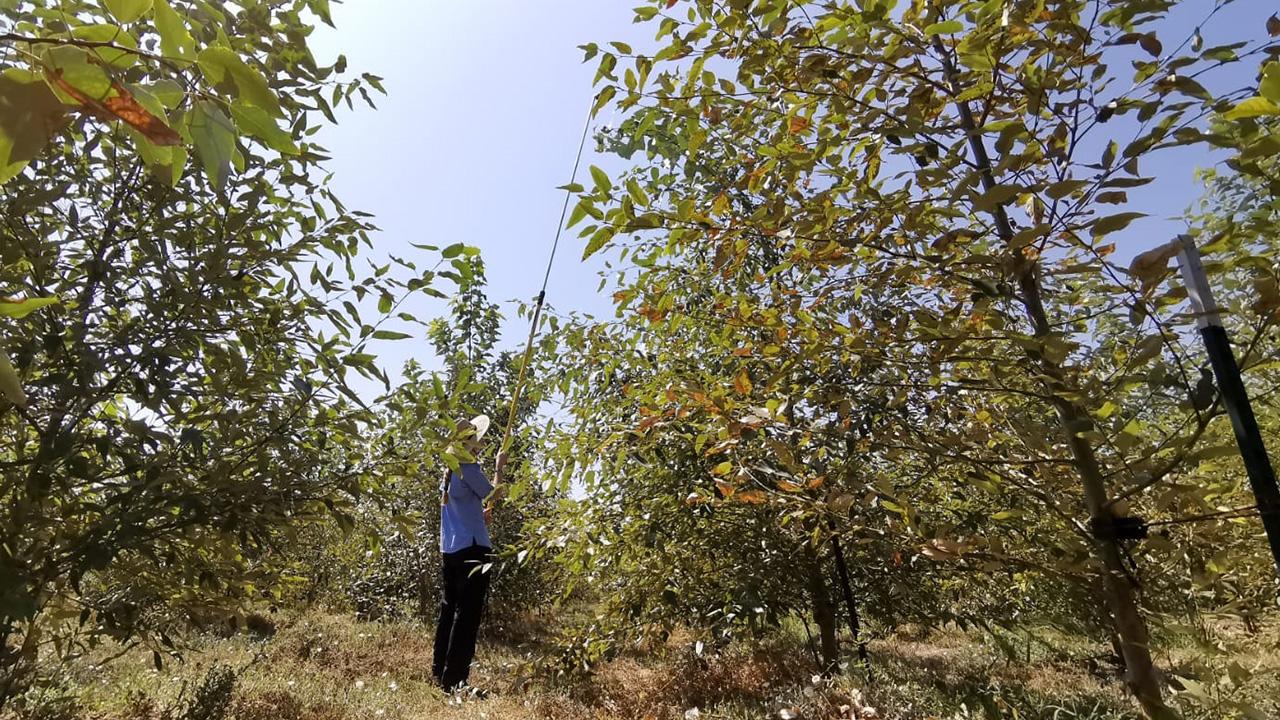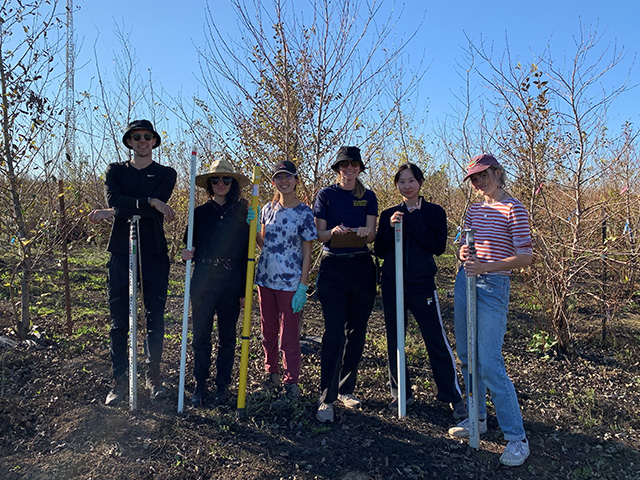
DOE grant extends poplar tree project for Taylor Lab
Work continues to grow climate-friendly jet fuel
The Taylor Lab will receive continued funding as part of a ground-breaking project to wean the United States’ aviation industry off petroleum-based fuel and help put the brakes on climate change. The U.S. Department of Energy announced the UC Davis project as part of a $590 million package over the next five years. The Taylor Lab’s goal: grow poplar trees that can be turned into sustainable, cost-effective jet fuel.
The announcement came just as the Intergovernmental Panel on Climate Change released its latest report on world progress to reduce the human causes of global warming. Adopting plant-based fuel for the aviation and transportation sectors is one of the top 10 solutions to avoid the worst consequences of warming. The Biden Administration has set the ambitious aim of reaching net-zero emissions for the whole economy by 2050, and this grant furthers that goal.
“We are delighted to receive this new funding as we push closer to the development and testing of a bio-based aviation fuel from poplar trees. Our research to understand and manipulate tree productivity for a sustainable and resilient future has rarely been more important to the economy and for the environment” Taylor is chair of the Department of Plant Sciences and the John B. Orr Endowed Professor in Environmental Plant Sciences.
New growth cycle: Vigor and “tree memory”

Just west of Davis, an unusual orchard of poplar trees already being grown for the project has just started a new growth cycle. Nearly $2 million of the DOE funds will support studies that seek trees with all the right qualities to produce both jet fuel and a profit for farmers. Researchers Jack Bailey-Bale and Marie Klein are looking for trees that grow fast and which can do so despite drought. They recently had the orchard chopped down, as would happen normally when harvested for biofuel, but poplars have extensive root networks that already are sending up new shoots. Now, Bailey-Bale said, they’ll see what their orchard produces in this new round of growth.
“Since April 2020, we have been monitoring more than 7,000 trees at this site, minute by minute, assessing how limited water impacts tree yield. Given that the DNA of each of our trees has already been sequenced, we can quickly identify genes underlying adaptation to limited water environments,” Bailey-Bale explained.
In the orchard’s initial growth cycle, the trees’ response to drought was of particular interest. Trees could have a kind of “drought memory,” Klein explained, mechanisms that could help them survive challenging conditions like water stress. “What will new cycles of growth look like in trees that previously experienced drought?” Klein posed. When new trees sprout in this next cycle, “will the mechanisms that were established during drought still be present?”
Feedstock to meet national goals
The researchers are looking for the genetic basis of all these qualities, in partnership with the Center for Bioenergy Innovation, based at the Oak Ridge National Laboratory, in Tennessee. “Compiling a comprehensive data set spanning multiple growth cycles within the wider framework of CBI is very important if we are to produce a reliable and robust biofuel feedstock to meet decarbonization goals,” Bailey-Bale said.
This new DOE funding extends the project started at the Taylor Lab in 2019 with a grant of $2.52 million.
Related links
Read more about the Taylor Lab's project to grow poplar trees for jet fuel.
Scientists warned that Earth’s temperature is quickly moving toward a critical point of warming 2.7 degrees Fahrenheit higher than 19th-century levels. Get the official summary of the IPCC’s Sixth Assessment Report here.
Media Resources
- Trina Kleist, UC Davis Department of Plant Sciences, tkleist@ucdavis.edu, (530) 754-6148 or(530) 601-6846
Editor's note: This article was updated April 10, 2023, to add Gail Taylor's quote and correct errors.
